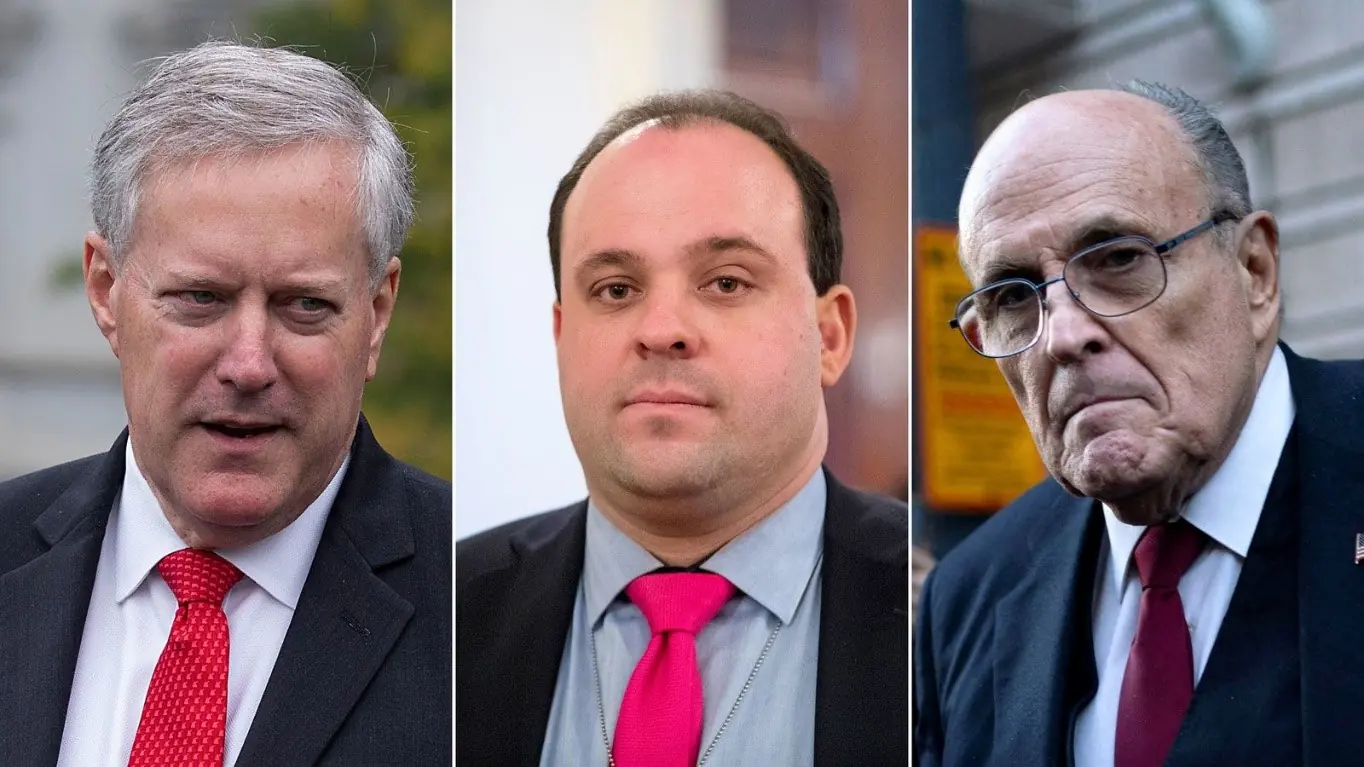
Trump Allies Rudy Giuliani, Mark Meadows, and Christina Bobb Face High-Stakes Hearing in Arizona Over 2020 Election Subversion Case
Fiona Nanna, ForeMedia News
6 minutes read. Updated 10:12AM GMT Mon, 26August, 2024
In a significant development within the ongoing legal battles surrounding the 2020 election, an Arizona Superior Court judge will preside over a crucial hearing on Monday that could determine the fate of several key allies of former President Donald Trump. The hearing comes as part of a broader investigation into the alleged criminal conspiracy to overturn the results of the 2020 presidential election.
High-Stakes Legal Drama
This hearing marks the first major courtroom confrontation since a grand jury in Arizona issued criminal charges against several Trump allies, including former White House Chief of Staff Mark Meadows, former Trump attorney Rudy Giuliani, and Christina Bobb, the Republican National Committee’s top lawyer on election integrity. The charges stem from their alleged involvement in a scheme to present fake electors in an attempt to subvert the legitimate election results in favor of Trump.
Prosecutors in Arizona have charged these individuals with multiple felonies, arguing that their actions meet the threshold for prison sentences rather than the lesser penalties typically afforded to first-time offenders. Defense attorneys, however, are expected to argue that the proposed punishments are excessively harsh, intended to pressure their clients into cooperation with the ongoing investigation.
The Role of Judge Bruce Cohen
Judge Bruce Cohen, appointed by former Democratic Governor Janet Napolitano in 2005, will hear arguments from both sides during the hearing. His decisions will be pivotal, setting the tone for the rest of the proceedings and possibly shaping the broader legal landscape for similar cases across the country.
Prosecutors are also expected to defend their case against claims that insufficient evidence was provided during secret grand jury proceedings. They will likely highlight their decision not to pursue charges against Trump himself in this particular case, despite significant interest from the grand jury.
Trump’s Continued Legal Troubles
While former President Trump has not been charged in the Arizona case, he remains a central figure in the ongoing legal drama. He was recently identified as “unindicted co-conspirator 1” in court documents, a label that underscores his involvement without directly implicating him in this case. Trump has already been charged at the federal level by Special Counsel Jack Smith and in Georgia by Fulton County District Attorney Fani Willis for his efforts to overturn the 2020 election.
The Arizona hearing comes just days after Trump held a rally in the state as part of his 2024 presidential campaign, further complicating the legal and political landscape. The investigation in Arizona is ongoing, with prosecutors leaving the door open for potential future indictments, including against Trump himself, should new evidence emerge.
Cooperation and Plea Deals
In recent weeks, Arizona prosecutors have secured significant cooperation from former Trump allies. Jenna Ellis, a former attorney for the Trump 2020 campaign, agreed to cooperate with the investigation in exchange for having charges against her dropped. Ellis is expected to provide testimony against other defendants as part of her deal.
Additionally, Loraine Pellegrino, one of the fake electors facing state-level criminal charges, reached a plea deal with prosecutors earlier this month. Pellegrino, who signed the fraudulent document central to the case, pled guilty to a single charge of false documentation, leading to the dismissal of the remaining charges against her.
Looking Ahead
The other defendants in the Arizona case, including several prominent members of the state’s Republican Party and former White House aide Boris Epshteyn, have pleaded not guilty and continue to fight the charges. As the legal proceedings move forward, the upcoming hearing on September 5 for Mark Meadows, Trump’s former chief of staff, will be another critical juncture. Meadows’ attorneys argue that his actions were part of his official duties and thus should be protected under federal law, seeking to move his case from state to federal court.
With the stakes incredibly high and the political ramifications significant, the outcome of Monday’s hearing in Phoenix could have lasting effects on the broader legal battles related to the 2020 election.

